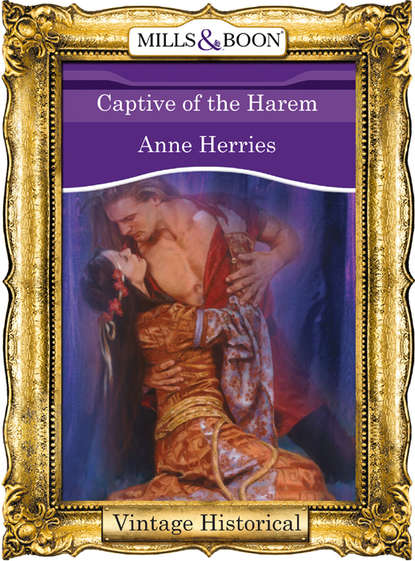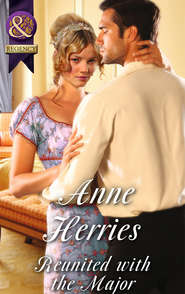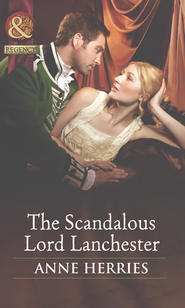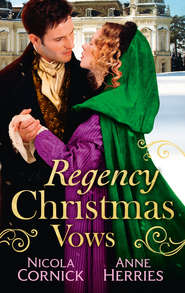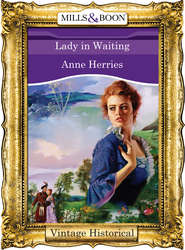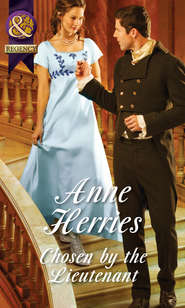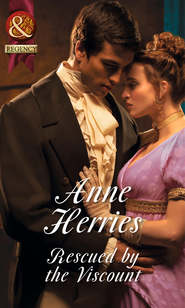По всем вопросам обращайтесь на: info@litportal.ru
(©) 2003-2024.
✖
Captive of the Harem
Настройки чтения
Размер шрифта
Высота строк
Поля
‘The Caliph wished to see his unworthy son?’
‘Suleiman is a most worthy son,’ Caliph Bakhar replied after the ritual salute. ‘I have a problem, Suleiman. The Sultan has made it clear that he is displeased over certain disorders in the city—there was a riot in the streets and the mob passed close to the palace walls.’
‘The disturbance was swiftly quelled by the Janissaries.’
‘But it should not have been allowed to happen so near the palace,’ his father said. ‘I have displeased our master, therefore, I must find gifts to regain favour in his eyes.’
‘What does my father have in mind?’
‘Something of rare beauty—an important piece of Venetian glass, perhaps?’
‘Or a beautiful woman?’
‘She would have to be an exceptional woman. The Sultan has many Kadins.’
The Kadins or Sultanas were women who had pleased their royal master and were given their own luxurious apartments—much as Fatima was favoured in Suleiman Bakhar’s much smaller harem.
‘Of course.’ Suleiman frowned. ‘Does my father wish me to visit the slave markets of Istanbul—or travel to Algiers?’
‘You are not to leave our shores,’ the Caliph said with a frown. ‘We have too many enemies. Send word that we are looking for something special. She must be lovely beyond price and untouched.’
‘It would be rare to find such a jewel,’ Suleiman replied. ‘Perhaps I should look for some other treasure that would please the Sultan?’
‘It would be wise,’ the Caliph said, nodding. ‘And now, my son—will you hunt with your father? I have a new hawk I would match against your champion.’
‘None can match Scheherazade—she flys higher, swifter and her bravery puts all others to shame.’ His pupils were lit from within by a silver flame as he spoke of his favourite hawk.
‘She is truly a bird to prize above all others. Find a woman as beautiful, clever and brave as your hawk, Suleiman, and the Sultan will forgive me a hundred riots.’
‘If such a woman exists, she would be a prize above all others,’ Suleiman replied. ‘I do not think we shall find this woman, my father—though we search all the markets in the Ottoman Empire!’
Eleanor stood at the top of the cliff gazing out towards the sea. The view was magnificent—sparkling blue water, gently wooded slopes and a dazzling variety of oleander and wisteria. The wisteria had spread from the gardens of the villa behind her, she thought, and inhaled its wonderful perfume.
Such a glorious day and yet her thoughts at that moment were of the house they had left behind five months earlier. It would be autumn in England now, the mists just beginning to curl in from the sea, swirling into the Manor gardens. The Manor was the home she had shared with her father and brother for the first eighteen years of her life, and she doubted she would ever see it again.
‘Why so sad, Madonna? Does the view not please you?’
Eleanor turned to look at the man who had spoken, her deep azure eyes seeming to reflect the blue of the Mediterranean sky. Beneath the severe French hood she wore, her hair was long and thick, the colour of ripe corn in sunlight. She kept it well hidden, even though she had thought herself safe from being observed here, but wisps had escaped to tangle betrayingly about her face. She could do nothing to disguise the loveliness of her classic features, though she chose dark colours that did nothing to enhance her beauty.
‘I was thinking of my home,’ she replied, unable to hide a wistful note in her voice. ‘It will be misty now and the fires will be lit in the library.’
‘You cannot prefer the cold damp climate of your country to Italy?’ His eyebrows arched in disbelief. ‘But perhaps there was a lover…a young man who holds your heart in his hand?’
For a moment Eleanor was tempted to invent a handsome fiancé, but she was an honest girl and did not wish to lie.
‘No, sir. I was thinking of my books. We were unable to bring many with us. As my father has told you, we were forced to leave in a hurry.’
Count Giovani Salvadore nodded, his expression sympathetic. He was a man of moderate height, not fat but well built with rather loose features. His hair and small beard were dark brown, his eyes grey and serious. Eleanor supposed he would be considered attractive, and his wealth made him an important man in the banking circles of Italy.
‘It was an unpleasant experience for you,’ the Count replied. ‘Fortunately, your father had already placed much of his fortune with the House of Salvadore for safe keeping.’
‘Yes, that was very fortunate,’ Eleanor agreed, hiding her smile behind her fan. He was so pompous, so sure of himself! Yet she should not be ungrateful. He had generously made his villa available to her family until they should find somewhere they wished to settle. Sir William Nash had spoken of this part of Italy as being pleasant but Eleanor knew that he meant to travel on to Cyprus very soon. He had friends there: an English merchant who had settled on the island some years earlier and had offered both a home and an opportunity for Sir William to join him in business.
‘Shall we go in?’ The Count offered Eleanor his arm. ‘Your skin may suffer in this heat if you stand in it too long.’
Eleanor had come out to be alone for a while. The Count’s mother and sister chattered like magpies all day long, and they did not speak much English. She had hoped to escape for a while, so that she could have a little time to herself—but he had pursued her.
As she had feared, the Count was too interested in her for comfort. At home in the west of England, she had been allowed to do much as she pleased, and it pleased her to keep her distance from any gentleman she had considered a threat to her peaceful existence.
Eleanor had no wish to marry. She had become the mistress of her father’s home when her mother died. She had been fourteen then, already a pretty girl but inclined to solitary walks and study. Lady Nash had spoken often of her lovely daughter’s future marriage, but after her death it had been forgotten. Eleanor liked it that way.
To be a wife meant servitude. As a much-loved and indulged daughter, Eleanor had a freedom she might lose if she married. Sir William was an enlightened man. He had taught his daughter to enjoy study for its own sake, and her intelligence delighted him. She spoke French fluently, a little Italian, and could read some Arabic and Latin, of course. Her main interest was ancient history, which she could discuss at a level above most men of equal rank, and she had thought that when the time came for them to leave England, she would enjoy seeing the places of which she had only read.
Indeed, she had enjoyed her visits to Venice and Rome, drinking in the beauty of old palaces and wonderful scenery. It was only since they had come to the villa that she had begun to feel restless.
Count Giovani Salvadore was too attentive! He made Eleanor feel as if he were trying to smother her with his generosity and his compliments caused her to be uneasy. She was afraid he meant to ask for her hand in marriage. Eleanor was almost sure Sir William would consult her in the matter, but she could not be certain. She would not feel comfortable until they were on the ship taking them to Cyprus!
‘There you are, Eleanor! Father sent me to find you.’
Eleanor saw her brother coming towards them and went forward eagerly to meet him. At fifteen, he was slight and fair, a merry, happy boy—and she loved him dearly.
‘I am sorry if I worried you, Dickon.’
‘Father wants to talk to you,’ Richard said, his smile shy and engaging. ‘He has something to show you—an illuminated manuscript. He wants you to help him decipher it.’
At last! Eleanor felt her spirits lift. She had missed working with her beloved father on his collection of old manuscripts. He was beginning to build them up again. When they had their own house, everything would be as it always had been. Sir William would not force her to marry. He cared for her too much!
She glanced at the Count and smiled. ‘Forgive me, signor. I must go. My father waits for me.’
‘Oh, Father!’ Eleanor cried as she saw the manuscript for the first time. ‘I do not think I have ever seen anything quite as lovely.’
The manuscript was tiny, and when rolled could be stored in a space no larger than the handle of a woman’s fan. Its container was made of pure gold and inlaid with emeralds and pearls, and there was a loop to suspend it from a chain or a ribbon so that it could be worn on the person.
‘It is writ in Arabic,’ Sir William said. ‘But my eyes are not good enough to make out the words.’
The script was very small, though the decoration of gold leaf, rich crimson and deep blue was as clear and bright as the day it had been painstakingly inscribed.
‘It is a part of the Qur’an,’ Eleanor said. ‘Or the Koran, as the Western world would name the Muslim’s holy script. But there is an introduction…it praises the goodness of Allah, and asks for his blessing…’ She paused. ‘I think it says for the Abbey of the Far Cross…surely that cannot be, Father? I do not understand—would an Islamic prayer ask for Allah’s blessing on a monastery?’
‘Yes, that it is correct,’ her father said and she saw the gleam of excitement in his eyes. ‘It is the work of Abbot Gregorio. He was a very learned man who lived at an Abbey on an isolated island in Greek waters some three centuries ago. The monks were a silent order, but they had many secrets and there were legends of their fabulous wealth—though where it came from no one knew. According to the story, the Abbot believed that all religions stemmed from the same source and it is said that he was very interested in Islam—but his great wisdom did him little good. Not long after this manuscript would have been created, the Abbey was burned to the ground by Saracens and all the monks were slaughtered. No one knew what had happened to the treasures of the Abbey. They were thought lost…’ Sir William’s excitement was intense. ‘This was discovered in an iron pot in the ground on Cyprus—on our land, Eleanor. Who knows what more we may find hidden away?’
‘No, indeed, if the story be true—we might find untold treasures.’ Eleanor caught her father’s excitement. ‘It is very intriguing,’ she said and smiled at him. ‘This must be worth a great deal in itself. Did Sir John send this to you?’
‘He writes that it was discovered when the gardeners were working near to the house he purchased in my name. Knowing of my interest in such things, he sent it with his warm wishes for our speedy arrival.’
‘Does that mean that we are to leave Italy soon?
‘Yes. It pleases you that we are to leave this house?’ Sir William’s eyes were a faded blue, his hair silvered by age but showing traces of the gold it had once been. ‘Have you not been happy here, daughter? The Count has been kind…’





